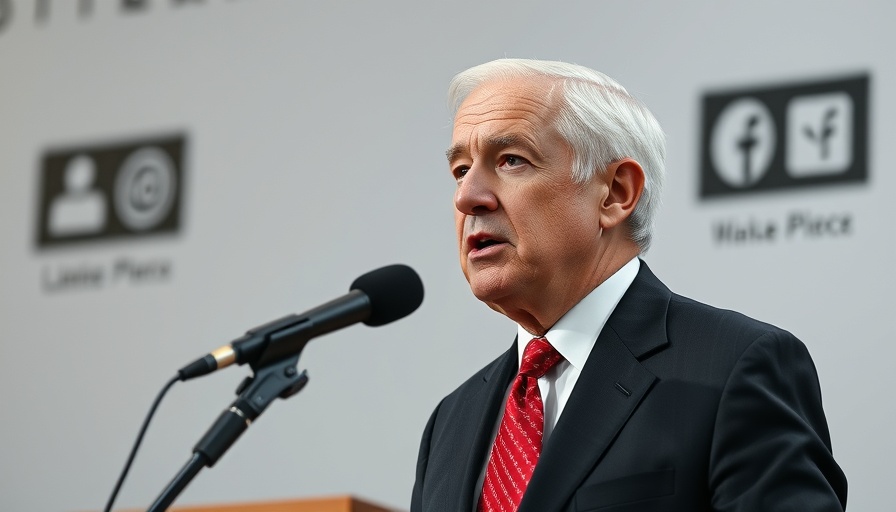
A Call for Transparency: Addressing Mkhwanazi's Allegations
On July 13, 2025, President Cyril Ramaphosa took to the nation to address serious allegations made by KwaZulu-Natal Police Commissioner Nhlanhla Mkhwanazi. His statements come at a critical juncture for South Africa’s political landscape, revealing underlying tensions within the government as well as between senior police officials and politicians.
The Mkhwanazi Allegations: A Snapshot
Mkhwanazi, known for his robust stance against crime, has implicated several high-ranking politicians and members of the police force in allegations of misconduct and corruption. These claims, if substantiated, would necessitate a serious reevaluation of leadership within the national police service and may have far-reaching implications for the upcoming 2024 general elections and 2026 municipal elections.
The Broader Implications for the Coalition Government
This controversy highlights the precarious nature of South Africa’s Government of National Unity (GNU), where coalition politics demand not only cooperation but also accountability. With the African National Congress (ANC) leading a frail coalition, opposition parties such as the Democratic Alliance (DA) and the Economic Freedom Fighters (EFF) are poised to capitalize on any sign of instability, particularly if Mkhwanazi’s allegations lead to tangible fallout.
Political Realignment and the Role of Public Discourse
The shifting political landscape underscores the importance of public perception and discourse. Mkhwanazi's bold accusations come at a time when the electorate is increasingly disillusioned with governance, as evidenced by a surge in calls for electoral reform. Experts suggest that a robust inquiry into these allegations might not only bolster faith in the justice system but also redefine party alignments ahead of crucial electoral events.
Counterarguments: Debunking Myths Surrounding Allegations
While some will argue that Mkhwanazi’s allegations are politically motivated, potentially aimed at destabilizing the ANC ahead of critical elections, others believe they reflect a deeper malaise of corruption and inefficiency entrenched in South African political and policing systems. This dichotomy presents a fertile ground for discussion on the integrity of both the police force and its political overseers.
Call for Accountability and Anti-Corruption Measures
To address potential ethical breaches, President Ramaphosa’s administration may need to implement stringent anti-corruption measures, reinforced by thorough investigations into the claims made by Mkhwanazi. Such actions would serve to both restore faith in public institutions and illustrate the government's commitment to transparency and accountability.
Impact on Policy and Governance
As South Africa grapples with significant issues such as crime, governance, and economic inequality, the fallout from these allegations could significantly influence policy debates around police reform, economic policy, and community safety initiatives. The need for reform is underscored by ongoing challenges like youth unemployment and income inequality, reinforcing the public’s demand for governance that prioritizes service delivery and ethical conduct.
Conclusion: A Transformative Moment for South Africa
In this moment of potential upheaval, it remains crucial for South Africans to engage in discourse about the nature of accountability, governance, and national integrity. As these developments unfold, citizens and stakeholders alike must remain vigilant and informed, advocating for a transparent process that addresses the real concerns raised by Mkhwanazi. The path forward hinges on collective action and unwavering commitment to democracy.
As we await further developments in these serious allegations, it’s important for you, as a concerned citizen, to stay informed and active. Engage in discussions about national governance and push for accountability in all sectors. Together, we can demand the change we wish to see.
 Add Row
Add Row  Add
Add 




Write A Comment